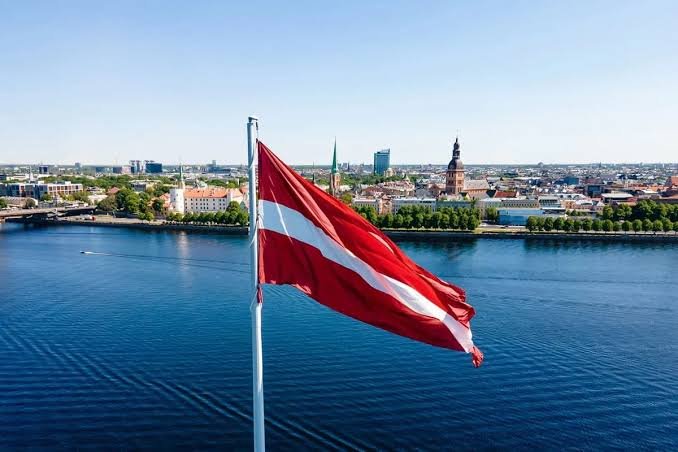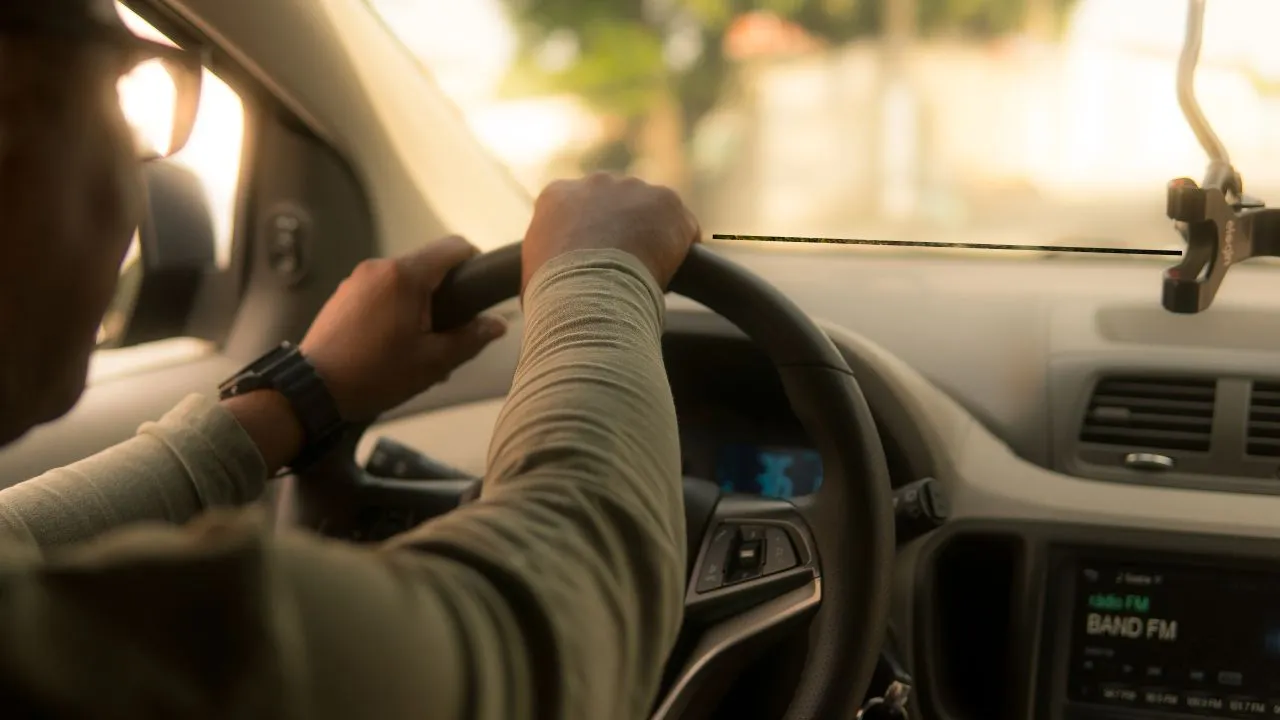Travel Guides & Articles
Where Did India Travel? Booking.com Reveals Key Highlights from H1 2025

INDIA, August 28, 2025: For Indian travellers, holidays are no longer just an escape but a source of joy, wellbeing and renewal. With 66%* seeking travel to boost their mood and 58%* opting for short domestic trips this year followed by short international trips (36%*), From perennial regional favourites to short-haul getaways, Booking.com’s latest search trendsspotlights where Indian travellers were dreaming of jetting off to in H1 2025.
Santosh Kumar, Regional Manager, South Asia at Booking.com said, “The evolving mindset of Indian travellers highlights a fascinating mix of global curiosity and local pride. Whether it’s a short-haul international break closer to home or a quick domestic escape, we’re seeing Indians choose destinations that align with their lifestyle aspirations, wellness goals and cultural curiosity. This shift underlines the opportunity ahead, with 84% of Indian travellers feeling optimistic about travel in 2025, we at Booking.com remain committed to supporting this momentum by making it easier for travellers to book every element of their journey, from stays and flights to attractions and transport, all in one seamless experience.”
From Cities to Countryside: Where Indians Were Headed
Bengaluru, Mumbai and New Delhi lead the list of most-searched domestic destinations driven by a combination of business travel, visiting friends and family and the increasing desire for quick, accessible weekend getaways. Beyond urban centers, the data highlights a growing interest in India’s leisure hotspots. Destinations such as Ooty, Rishikesh, Lonavala, Jaipur and Puducherry continue to be popular, with Rishikesh and Puducherry showing a 25%** y-o-y growth in accommodation searches with a rising interest among travellers in experiences centered on wellness, nature and cultural immersion.
Top searched domestic destinations on Booking.com by Indian travellersbetween Jan 1 2025 – Jun 30 2025 for stay dates Jan 1 2025 – Jun 30 2025 (H1 2025)**
- Bengaluru
- Mumbai
- New Delhi
- Ooty
- Rishikesh
- Chennai
- Lonavala
- Hyderabad
- Jaipur
- Puducherry
APAC Hotspots Continue to Attract Indian Travellers
On the international front, Dubai takes the top spot as the most-searched destination for Indian travellers, with a 62%** y-o-y increase in searches. Tokyo has emerged among the top 5 most searched international destinations, witnessing a 90%** rise in accommodation search during the first half of the year, driven by its unique blend of seasonal attractions and rich cultural experiences. Intra-regional travel within Asia-Pacific is also seeing steady momentum with 8 out of the 10 top searched destinations within the region. Destinations like Singapore, Bangkok, Kuala Lumpur, Phuket and Bali all rank among the list, highlighting the enduring appeal of short-haul, culturally rich and visa-friendly getaways.
Top searched international destinations on Booking.com by Indian travellersbetween Jan 1 2025 – Jun 30 2025 for stay dates Jan 1 2025 – Jun 30 2025 (H1 2025)**
- Dubai
- Singapore
- Bangkok
- London
- Tokyo
- Paris
- Kuala Lumpur
- Phuket
- Bali
- Abu Dhabi
The Broader APAC Context
Indian travel patterns align with a broader regional trend of balancing local getaways with international adventures in H1 2025.***
●Japan remains top of mind for travellers across APAC, attracting strong interest both internationally and domestically. South Korea and Thailand follow closely, continuing to be among the region’s most sought-after destinations.
●Intra-regional travel is on the rise reflecting a balance between local pride and international curiosity. Even as APAC travellers explore regional options, homegrown destinations such as Kuala Lumpur, Ho Chi Minh City, Sydney and Tokyo hold the top spots in their respective markets.
●The data further underscores APAC’s persistent appetite for intra-regional travel. All but one of the top ten most searched destinations per market were located within APAC – the exceptions being London and Paris, which broke into India’s and Hong Kong’s list. For most, proximity, cultural familiarity and convenience continued to shape travel decisions.
Travel Guides & Articles
Latvia makes ETA mandatory before landing

Latvia has introduced a new electronic travel authorisation (ETA) system, requiring certain travelers to provide detailed information online before entering the country. The declaration must include the purpose of travel, planned stay details, travel route, contact information, and any elected positions held by the traveller or their relatives. Additionally, it will require disclosure of election candidacy, previous or current state or local government roles, and past service in the Armed Forces, Special Services, Border Guard, Customs, Interior, Justice, or Foreign Affairs services.
Once submitted, applicants will receive a confirmation email acknowledging the receipt of the form. However, this confirmation is not an entry permit but a compulsory declaration. Authorities warn that any omission or misrepresentation in the form could result in refusal of entry. Failure to comply or providing false information could lead to administrative fines of up to EUR 2,000, as outlined in the decree approved by the Saeima in April.
The new ETA system is designed to help Latvian authorities identify potential high-risk travelers before they arrive. This pre-screening will allow border police, security services, and other government agencies to access relevant information quickly, enhancing national security. The measure forms part of Latvia’s broader border control and public safety strategy.
The ETA will function independently from the upcoming European Travel Information and Authorisation System (ETIAS), which is set to begin at the end of 2026. While ETIAS will apply across all 30 Schengen area countries, the Latvian ETA will only be valid for entry into Latvia and will not grant entry approval — it is strictly a data collection process.
Under ETIAS, visa-exempt travelers will need to register online, pay EUR 20, and receive authorisation valid for up to three years or until passport expiration. This European system is aimed at streamlining travel security checks across the Schengen zone. The Latvian ETA, on the other hand, serves national interests by focusing specifically on entry into Latvia.
At present, there is no official statement on how the Latvian ETA and ETIAS will operate together. A temporary overlap between the two systems is possible once ETIAS comes into effect. Until then, travellers should ensure they understand and comply with the requirements for Latvia’s ETA to avoid delays, penalties, or refusal of entry.
Travel Guides & Articles
‘Faced Multiple Scams In Just 2 Days, Too Many Bad Intentions’

Viral Reddit Post: A foreign tourist’s post on Reddit has started a big debate online after he shared his bitter experience in India. The traveller, who mentioned in the comments that he is from Switzerland, said that within just two days of his trip, he came across several scam attempts that left him upset and questioning whether he would ever suggest India as a travel spot to anyone. In his post, he explained that it was his second visit to India and he was excited about the energy and new experiences. But things changed when an Uber driver allegedly misled him by saying the road was blocked due to a landslide and took him to a hotel where people tried to overcharge him.
The tourist refused to fall into the trap and managed to get another taxi, but the experience ruined his plans for the night. Sharing his frustration, he wrote, “I would not tell my mom, my sister, or my friends to come here. It’s just so many scams going on and many people have bad intentions towards you.”
His strong words quickly went viral, with some internet users agreeing with him and others pointing out that scams are common in many countries and that precautions are always necessary.
Watch The Viral Post:
I enjoy traveling in India, but I can’t recommend it to anyone.
byu/Gurumanyo inindia
The post garnered significant likes, comments and views from Reddit users. One user wrote, “Bro they are ready to scam their fellow countrymen, what makes you think they won’t scam you? For them you are just a rich customer with little knowledge.” “There is zero law enforcement across all sectors. No one is scared and everyone can get away paying a small bribe if they are caught,” a second user wrote.
“There are too many people there with minimal resources. People scamming others is, unfortunately, just an everyday thing. It’s just a way of life, but on the other side, there are a ton of really good people, too,” wrote a third user. “Sorry for your experience, mate!! If it’s any consolation, we fellow Indians are not immune to these scams either,” added a fourth user.
Travel Guides & Articles
ScotRail abolishes peak fares on all services

Scottish train operator ScotRail has scrapped peak fares on all services operating from Monday, 1 September.
The move, which was announced by the Scottish government earlier this year, means that passengers now pay the same fare regardless of when they travel.
In a statement, ScotRail said that removing peak fares would mean “significant savings” for travellers with some fares being cut by almost 50 per cent, including those between the country’s largest cities Edinburgh and Glasgow.
Previously, ScotRail’s peak fares applied to weekday travel before 9.15am and on some services between 4.42pm and 6.30pm.
A peak return ticket between Edinburgh and Glasgow had been priced at £32.60 but has been reduced to a flat rate of £16.80, which represents a saving of 48 per cent.
Fiona Hyslop, the Scottish cabinet secretary for transport, said: “We want more people to choose to travel by public transport for work, study and leisure but we know that many are still struggling with cost-of-living pressures.
“By removing peak fares, we are making ticketing more simple and more straightforward while at the same time supporting a shift towards sustainable public transport, protecting the climate, and saving people money.”
Joanne Maguire, ScotRail’s managing director, added: “Travelling by train remains one of the most convenient ways to get around, and with simpler, more affordable fares, we hope to see many more people choose ScotRail.”
ScotRail previously scrapped peak fares in 2023 as part of a pilot scheme, but this ended a year ago when Scottish ministers said it had only been a “limited success”. The Scottish government said it would reverse this decision in May and once again axe peak train fares from September.
-

 Business3 days ago
Business3 days agoThe Guardian view on Trump and the Fed: independence is no substitute for accountability | Editorial
-
Tools & Platforms3 weeks ago
Building Trust in Military AI Starts with Opening the Black Box – War on the Rocks
-

 Ethics & Policy1 month ago
Ethics & Policy1 month agoSDAIA Supports Saudi Arabia’s Leadership in Shaping Global AI Ethics, Policy, and Research – وكالة الأنباء السعودية
-

 Events & Conferences3 months ago
Events & Conferences3 months agoJourney to 1000 models: Scaling Instagram’s recommendation system
-

 Jobs & Careers2 months ago
Jobs & Careers2 months agoMumbai-based Perplexity Alternative Has 60k+ Users Without Funding
-

 Funding & Business2 months ago
Funding & Business2 months agoKayak and Expedia race to build AI travel agents that turn social posts into itineraries
-

 Education2 months ago
Education2 months agoVEX Robotics launches AI-powered classroom robotics system
-

 Podcasts & Talks2 months ago
Podcasts & Talks2 months agoHappy 4th of July! 🎆 Made with Veo 3 in Gemini
-

 Podcasts & Talks2 months ago
Podcasts & Talks2 months agoOpenAI 🤝 @teamganassi
-

 Mergers & Acquisitions2 months ago
Mergers & Acquisitions2 months agoDonald Trump suggests US government review subsidies to Elon Musk’s companies

